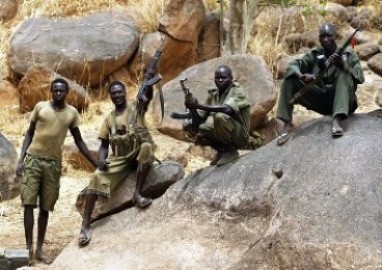SPLM-N to intensify attacks if Sudanese regime continues crackdown on protesters
October 10, 2013 (KHARTOUM) – The Sudan People’s Liberation Movement North (SPLM-N) secretary- general warned they , together with the Sudanese Revolutionary Front (SRF), would intensify attack on the regime if it continues its crackdown on peaceful protesters.

In a five-page statement extended to Sudan Tribune, Arman said the SPLM-N and the SRF groups discussed the role of the armed struggle in the protection of the popular uprising and ways to support it.
“We have concluded on the need for the uprising to retain its peaceful nature”, he stressed.
However he warned they “are completing our preparations to take the banner from the peaceful demonstrators and inflect another military defeat on the regime” if the anti-regime demonstrations face repression.
The Sudanese took to the street last September to demonstrate against the government’s decision to lift subsidies on fuel and other basic commodities.
The security forces killed over 60 people according to the government officials, as the activists speak about 200 victims. Over six hundred people are also under detention.
Youth activists call for another protest next Friday as they did last week after Friday prayer, but the government seems confident that the situation is under control after the rise of wages and some specific economic measures aiming to maintain the subsidies of public transportation and bread.
Arman who said convinced that the demonstration will increase during the upcoming period also disclosed they held discussions with Islamist reformists, saying they are a factor of the political situation in Sudan to be taken in consideration and to deal with them on the basis of a clear political platform to achieve a comprehensive political change.
He also stressed that such dialogue avoids the rise of a new group of Islamists under the pretext they have better solutions than the NCP , or a palace coup bringing military officers.
SPLM-N ORGANIZATION AND NEW ALLAINCE
The SPLM leadership meeting agreed to re-compose the liberation council after the separation with the South Sudan ruling party SPLM. The meeting also decided to develop the Movement’s activities in the towns and rural areas controlled by the government.
Regarding the armed wing, the Sudan People’s Liberation Army- North, it is decided to immediately hold a meeting for the SPLA command and to prepare for a conference of officers.
The meeting also approved the SPLM-N transitional constitution to organise the different institutions of the rebel group inside and outside the country.
Arman said they believe the Sudanese Revolutionary Front is a strategic alliance that should continue and be developed to include new parties, adding that a committee is formed to contact the new and democratic forces to form a joint political umbrella.
“The SPLM-N is willing to unite with the forces of the New Sudan to build a national liberation movement, able to contribute in the building of a new democratic Sudan based on equal citizenship and social justice”, he further said.
The SPLM-N projects to prepare itself for the political role they can play in the country after the fall of the regime as the opposition forces, which are divided between leftist and traditional parties, failed to reach a joint programme on the future of the country.
On the other hand the traditional opposition forces seem reluctant to accept the rebel groups as full partner in the post Bashir’s regime process.
The formation of a large political party including social democrats and secular forces besides the current allied rebel groups aims also to give this political force a majority enabling it to rule the country after democratic elections.
During the different democratic regimes, a coalition of traditional parties ruled the Sudan., except in 1989 when the then prime minister Sadiq Al-Mahdi formed a government with the National Islamic Front of, months before a military coup that brought the regime of general Bashir.
(ST)
